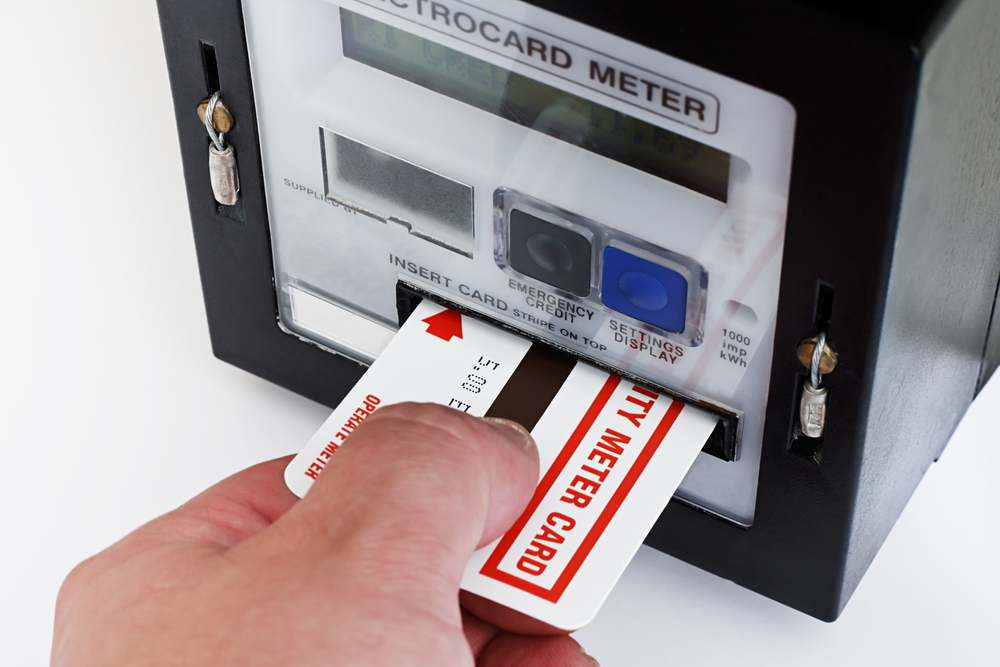Household Bills
Forced energy prepayment meter ban extended

Guest Author:
Emma LunnEnergy suppliers have been banned from forcibly installing prepayment meters for people over 75 and homes with children aged under two-years-old.
Ofgem has confirmed that the code of practice for the “involuntary installation” of prepayment meters (PPMs) will be made mandatory. It has also extended protections to prevent involuntary installations for the most vulnerable households.
The voluntary PPM code of practice, which all energy companies signed up to in April, was put in place after evidence emerged of bad behaviour by suppliers severely affecting struggling customers.
Following a public consultation over the summer, the code will now become part of suppliers’ licence conditions, which if breached can result in enforcement action and substantial fines.
The new rules
Initially, the no-install rule applied to customers aged 85 and over with no other support in their home, residents with severe health, or those with a medical dependency on a warm home.
But Ofgem has now dropped the upper age limit to include consumers aged 75 and over without support, and added homes with very young children.

Wellness and wellbeing holidays: Travel insurance is essential for your peace of mind
Out of the pandemic lockdowns, there’s a greater emphasis on wellbeing and wellness, with
Sponsored by Post Office
Currently, no suppliers are carrying out involuntary installations and will face severe penalties if they do unless they meet strict criteria set by Ofgem. When suppliers do so, the new rules – which come into effect on 8 November – will ensure they are acting in a “fair and responsible” way with involuntary installations used only as a last resort.
From 8 November, before a PPM can be involuntarily installed energy suppliers must:
- Make at least 10 attempts to contact the customer
- Carry out a site welfare visit before a prepayment meter is installed
Suppliers must refrain from all involuntary installations for the highest risk customers including:
- Households which require a continuous supply for health reasons, including dependence on powered medical equipment
- Households where all occupants are aged 75 years and over (if there is no other support in the house)
- Households with children aged under two-years-old
- Households with residents with severe health issues including terminal illnesses or those with a medical dependency on a warm home
- Where there is no one within the household that has the ability to top up the meter due to physical or mental incapacity
Audio or body cameras must be worn by the lead supplier representative present on all warrant installations or site welfare visits, with footage available for audit.
Suppliers will also be required to give customers a £30 credit per meter on all warrant installations and remote switches as a short-term measure to remove the risk of customers going “off supply” at the point of PPM installation. Energy firms must also re-assess the case once a customer has repaid debts owed.
Protecting vulnerable customers
Neil Kenward, director for strategy at Ofgem, said: “Protecting the most vulnerable consumers is at the heart of what we do, and this decision not only cements the protections Ofgem put in place for people deemed most at risk, it goes further to protect the most vulnerable households.
“Prepayment meters are an important payment method that help millions of households to manage their energy bills. But they are not suitable for everyone.
“Today’s enhanced rules are there to provide protection from bad practice while ensuring that when needed, and as a matter of last resort, suppliers are using involuntary installations in a fair and responsible way.
“Ofgem will be monitoring suppliers’ behaviour closely to ensure they are complying with the spirit and letter of these rules. If that is not the case, we will not hesitate to take action.”
Conor D’Arcy, interim chief executive of the Money and Mental Health Policy Institute, said: “This move by Ofgem is undoubtedly a step in the right direction and will help to reduce some of the grotesque behaviour from suppliers exposed by the media earlier this year. Ofgem must now be hot on enforcing these new rules – and punish firms who do not comply.
“However, while the new rules aim to protect the most ‘at risk’ groups from forced installation, the reality is that thousands of people with mental health problems could fall through the cracks. When you have a mental health problem, communicating with your provider about your situation can be incredibly difficult, and many people struggle to engage at all. So it’s vital that energy suppliers are proactive in identifying and providing the right support to customers who are in financial difficulty, to avoid unnecessary harm and distress.”